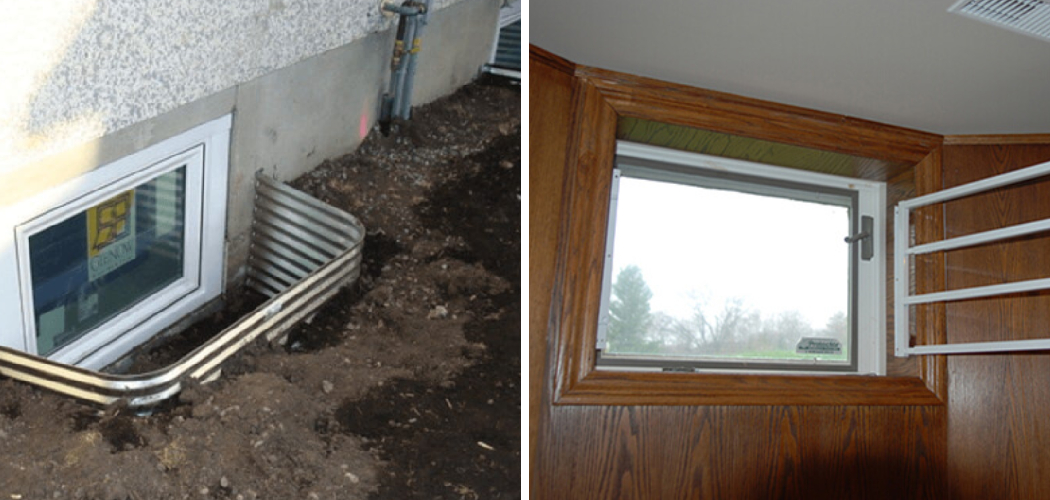Basement windows are common entry points for burglars, often overlooked during home security assessments due to their inconspicuous nature. Ensuring these windows are adequately protected is crucial for the overall security of your home.
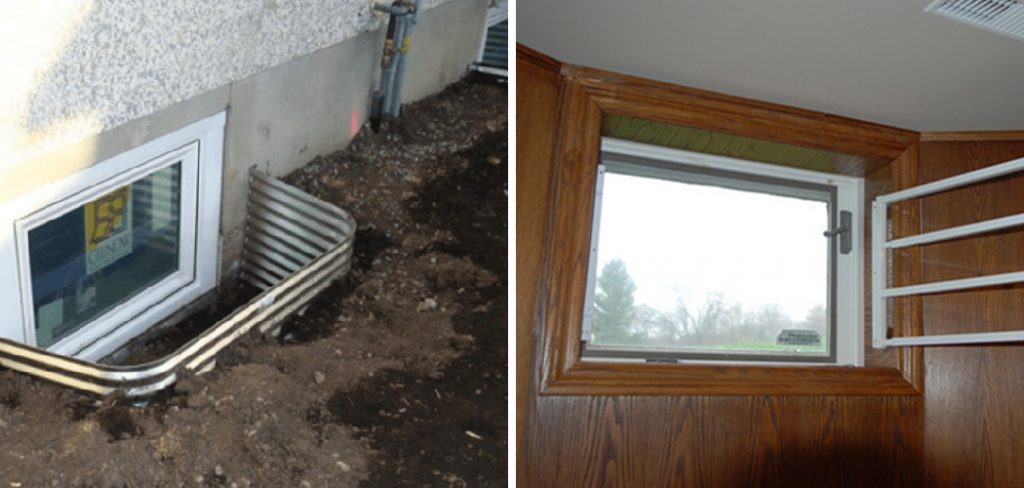
In this guide on how to protect basement windows from break ins, we will explore practical measures and strategies to reinforce basement windows, deterring any potential break-ins and enhancing your peace of mind. From selecting the right materials to considering advanced security systems, implementing these tips will help safeguard your basement effectively.
Why Are Basement Windows Vulnerable to Break-Ins?
Basement windows are often seen as vulnerable targets for burglars due to their location and design. These types of windows are typically smaller and more fragile compared to other windows in the house, making it easier for intruders to gain entry. Additionally, basement windows are usually located at ground level or below, providing easy access for criminals.
Moreover, many homeowners neglect to secure their basement windows adequately, focusing more on securing the main living areas of the house. This oversight can make your home an easy target for burglars who know how to exploit these weak points.
Needed Materials
Window Locks:
These are essential for securing basement windows. Opt for high-quality window locks specifically designed for basement windows, as they provide better protection against break-ins. Ensure the locks are properly installed and in good working condition.
Window Bars or Grilles:
Window bars or grilles can add an extra layer of security to your basement windows. These metal bars or grilles prevent burglars from entering through the window while still allowing natural light and air circulation.
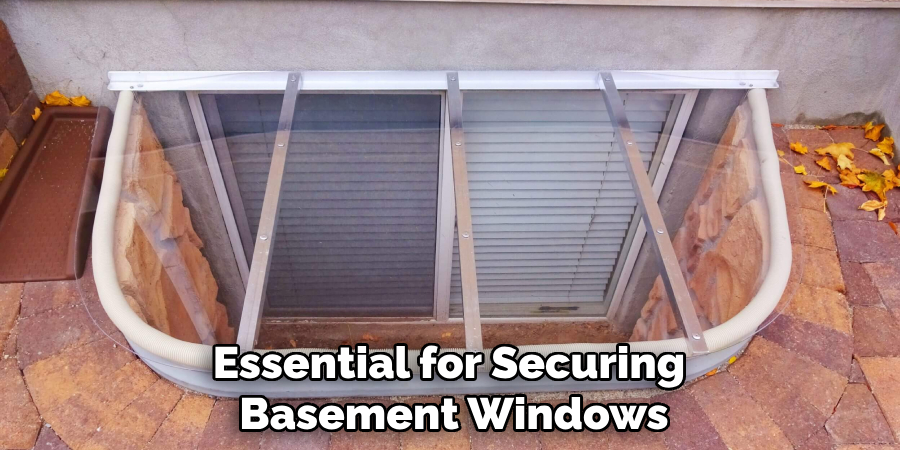
Reinforced Glass:
Consider replacing your basement windows with reinforced glass, such as tempered or laminated glass. These types of glass are more difficult to break, making it harder for intruders to enter your home. Additionally, reinforced glass is also more resistant to extreme weather conditions.
8 Simple Step-by-step Guidelines on How to Protect Basement Windows From Break Ins
Step 1: Inspect Your Windows Regularly
Begin by inspecting your basement windows regularly to identify any signs of damage or wear that could make them more vulnerable to break-ins. Check for cracks or chips in the glass, ensure the frames are secure, and examine the locks to confirm they are functional and robust. Regular inspections will allow you to address any issues promptly, ensuring your windows remain a strong barrier against intruders.
Additionally, keep an eye out for any gaps or weaknesses that could be exploited, and address these immediately to maintain the integrity of your home’s security.
Step 2: Reinforce Window Frames
Strengthening the window frames is a crucial step in preventing basement break-ins. Start by examining the frames for any signs of decay or weakness. If the frames are wooden, consider reinforcing them with metal strips or replacing them with metal or vinyl alternatives that offer more durability.
Additionally, ensure that the frames are securely fastened to the structure of the house. Using screws instead of nails can provide a more secure hold, making it harder for intruders to pry the windows open. Reinforced frames not only increase window security but also improve insulation, potentially offering additional energy efficiency benefits.
Step 3: Install Window Bars or Grilles
As mentioned earlier, window bars or grilles can significantly enhance the security of your basement windows. Measure the window opening accurately and purchase bars or grilles that fit snugly against the frame. Ensure these are securely attached to both the window frame and the house structure for maximum protection.

It’s essential to note that safety regulations may require homeowners to have a quick-release mechanism installed on these types of barriers, allowing for easy escape in case of emergencies. Be sure to check local laws and regulations before purchasing and installing window bars or grilles.
Step 4: Add Layers of Security Film
Applying security film on your basement windows is a cost-effective way to make them more difficult to breach. This film is transparent but provides an extra layer of protection against break-ins by making the glass harder to shatter. Additionally, security film can also offer added benefits such as UV protection and increased insulation.
The film should be applied on the inside of the window, and it’s crucial to follow the manufacturer’s instructions for proper installation. While security film may not completely prevent a break-in, it can significantly slow down an intruder’s attempts, potentially giving you enough time to call for help or escape.
Step 5: Utilize Window Locks
Properly installed window locks are a simple yet effective way to secure your basement windows. These locks come in various designs and materials, so be sure to select ones that fit your specific window type and provide adequate protection.
Ensure the locks are properly engaged when closing the window, and consider adding additional locking mechanisms, such as key-operated locks or pin locks, for added security.
Step 6: Consider Using Reinforced Glass
Replacing your basement windows with reinforced glass is another highly effective way of protecting them from break-ins. As mentioned earlier, tempered or laminated glass is much harder to break compared to traditional window glass.
In addition to added security, reinforced glass also offers other benefits such as improved insulation and soundproofing, making it a worthwhile investment for your home.
Step 7: Install Motion-Activated Lights
A well-lit exterior can help deter potential burglars by drawing attention to their actions. Installing motion-activated lights near your basement windows can be an effective way of preventing break-ins. These lights turn on automatically when they detect movement, startling potential intruders and alerting you or your neighbors of suspicious activity.
The combination of motion-activated lights and other security measures can significantly enhance the protection of your basement windows.
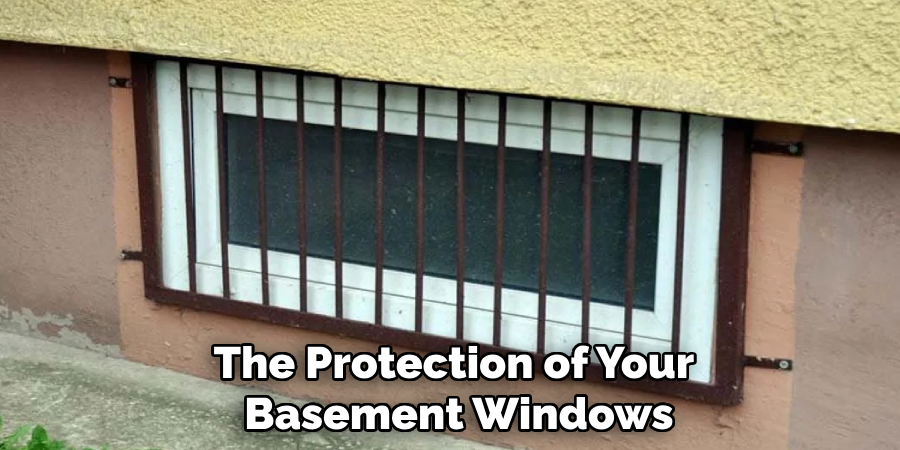
Step 8: Consider a Home Security System
While taking these steps to secure your basement windows is crucial, investing in a home security system can provide an added layer of protection for your entire home. These systems often include sensors on doors and windows, as well as cameras and alarms, providing round-the-clock monitoring and instant alerts in case of any suspicious activity or attempted break-ins.
Be sure to research different types of home security systems to find one that best fits your needs and budget. Additionally, consider consulting with a professional security company for personalized recommendations based on your specific home layout and potential vulnerabilities.
Following these simple yet effective guidelines on how to protect basement windows from break ins can go a long way in securing your basement windows against break-ins. Be sure to regularly check and maintain all security measures to ensure their continued effectiveness, and always prioritize the safety of yourself and your family above all else.
Frequently Asked Questions
Q: How Often Should I Inspect My Basement Windows for Potential Vulnerabilities?
A: It is recommended to inspect your basement windows at least once a month, and after any severe weather events or other incidents that could potentially cause damage. Regular inspections can help identify and address any weaknesses or gaps in your window security before they can be exploited by intruders.
Q: Can I Install Security Measures on My Basement Windows Myself, or Should I Hire a Professional?
A: While some security measures can be easily installed by homeowners, it is often recommended to consult with a professional for the best results. Professional installers have the necessary knowledge and experience to ensure that all security measures are properly installed and effectively protect your home. Additionally, hiring a professional may also offer warranty coverage for added peace of mind.
Q: Are There Any Other Benefits to Securing Basement Windows Besides Increased Security?
A: Yes, there are several additional benefits to securing basement windows, such as improved insulation and energy efficiency, increased UV protection for your home’s interior, and potentially lower insurance premiums. These added benefits make investing in window security a wise decision for both safety and overall home maintenance.
Q: Are There Any Additional Measures I Can Take to Protect My Basement Windows?
A: Yes, there are several other steps you can take to further enhance the security of your basement windows. These include installing window sensors that trigger an alarm when the window is opened, adding security cameras for surveillance and deterrence, and regularly trimming any shrubs or bushes near the windows that could potentially provide cover for intruders. It’s also essential to make sure all doors and windows are properly locked and to always keep valuables out of sight from the outside.
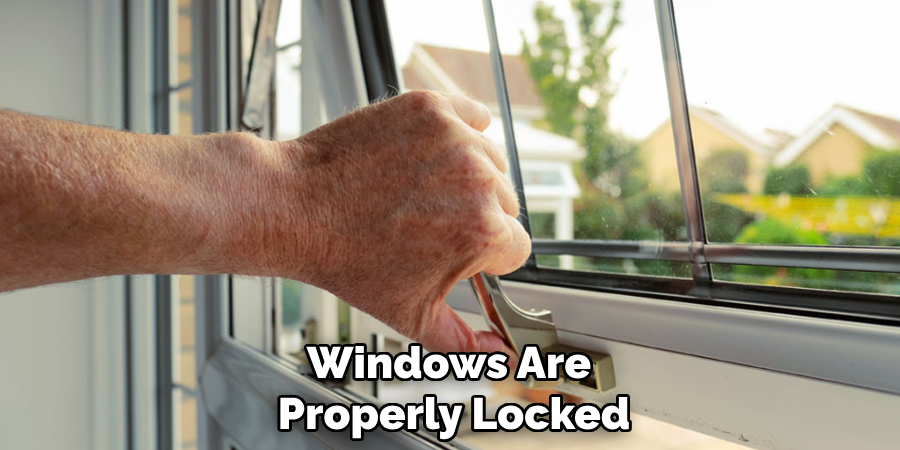
Conclusion
Securing your basement windows is a crucial step on how to protect basement windows from break ins in safeguarding your home from potential intrusions. By taking a proactive approach and implementing a combination of strategies—such as security bars, reinforced glass, and motion-activated lights—you can create a formidable line of defense against break-ins.
Regular inspections and maintenance of these security measures ensure their ongoing effectiveness. Additionally, enhancing window security not only provides peace of mind but also offers benefits like improved insulation and potentially lower insurance costs. Prioritizing the security of your home is an investment in the safety and well-being of your family.

